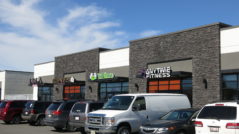Every commercial lease contract will contain a section on what you are expected to know about commercial insurance provisions. Lease contracts will outline what minimum commercial insurance you will be expected to buy to satisfy the contract provisions.
It is also a good idea to contact and discuss your commercial insurance needs with an insurance broker who specializes in commercial insurance as every business will require its own specialized needs for commercial insurance protection.
However, most commercial lease contracts will generally include the following requirements in some form of format pertaining to:
• Commercial Insurance Coverage Required By the Lessee
• Mutual Waivers of Claims (also known as Mutual Waivers of Subrogation
• An Indemnification Clause
Commercial Insurance Coverage
Most commercial leases will require that you have an “all risk coverage” which is also known as “special causes of loss form (CP 10 30)” and / or coverage for specified “named perils.” In cases where you are leasing the entire building, you may also be required to obtain property insurance to cover the building itself.
You should always ask the landlord to provide documented information about their insurance coverage which should preferably be outlined in the lease.
You will also likely require to purchase:
• Public Liability Insurance
• Workers Compensation
• Business Interruption/Loss of Income Insurance
• Plate Glass Insurance
• Additional Policy Coverage Stipulated in the Contract
Mutual Waiver of Claims/Subrogation
In most situations, it is preferable that the both the landlord and tenant each insure their own property and for replacement value. The purpose of these clauses is that if one party causes damage to the other’s property because of their negligence, or visa versa, both parties agree not to sue each other.
It is generally insufficient that this waiver only includes both parties and requires involving their respective insurers for this stipulation to adequately work, or legal difficulties can be encountered. This is where the “Mutual Waiver of Subrogation” comes into play, but the contents of the waiver itself can be very critical if designed improperly so you must be very clear about what this clause contains.
Indemnification
This generally refers to when a third party is injured on the premises. A tenant should confirm that the indemnification provision be applicable to the waiver provisions, and should also be to seek indemnification from a landlord for incidents that occur in common areas.
The above 3 provisions contained in any lease should be reviewed carefully and with the advice of a commercial insurance broker, lawyer and commercial real estate broker.












